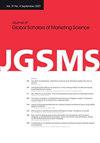The dark side of surge pricing and the mitigating role of information disclosure
IF 2.7
Q3 BUSINESS
Journal of Global Scholars of Marketing Science
Pub Date : 2023-09-15
DOI:10.1080/21639159.2023.2243483
引用次数: 0
Abstract
ABSTRACTThis research paper investigates the impact of surge pricing, a dynamic pricing strategy that adjusts prices based on real-time demand and supply, on customers’ perception of price fairness. We aim to provide insights for both academic and managerial audiences. Our study focuses on how businesses using surge pricing can minimize negative effects on customer behavior by properly communicating price changes. We conducted two experiments to examine customers’ fairness perception of surge pricing policies. Our findings revealed that customers generally perceive surge pricing as less fair. However, we also discovered that aligning the amount of information shared with the price increase can effectively improve these fairness perceptions. Our research contributes to the literature on price communication by exploring factors that influence consumers’ understanding and acceptance of price changes. Additionally, our findings offer practical guidance for businesses on how to communicate pricing information in a way that customers perceive as fair, ultimately benefiting both companies and their customers.KEYWORDS: Surge pricingprice fairnessinformation disclosureprice-information communicationconsumer decision-making Disclosure statementNo potential conflict of interest was reported by the author(s).Supplementary materialSupplemental data for this article can be accessed online at https://doi.org/10.1080/21639159.2023.2243483.动态定价的阴暗面与信息披露的缓解作用
摘要本文研究了动态价格策略——动态价格策略根据实时需求和供给调整价格——对消费者价格公平性感知的影响。我们的目标是为学术和管理观众提供见解。我们的研究重点是如何使用动态定价的企业可以通过适当的沟通价格变化,最大限度地减少对客户行为的负面影响。我们进行了两个实验来检验消费者对动态定价政策的公平感知。我们的研究结果显示,客户普遍认为动态定价不太公平。然而,我们也发现,将信息共享量与价格上涨相一致可以有效地改善这些公平感知。我们的研究通过探索影响消费者对价格变化的理解和接受的因素,为价格沟通的文献做出了贡献。此外,我们的研究结果为企业如何以客户认为公平的方式传达定价信息提供了实用指导,最终使公司和客户都受益。关键词:峰时定价;价格公平;信息披露;补充材料本文的补充数据可在https://doi.org/10.1080/21639159.2023.2243483上在线获取。
本文章由计算机程序翻译,如有差异,请以英文原文为准。
求助全文
约1分钟内获得全文
求助全文

 求助内容:
求助内容: 应助结果提醒方式:
应助结果提醒方式:


